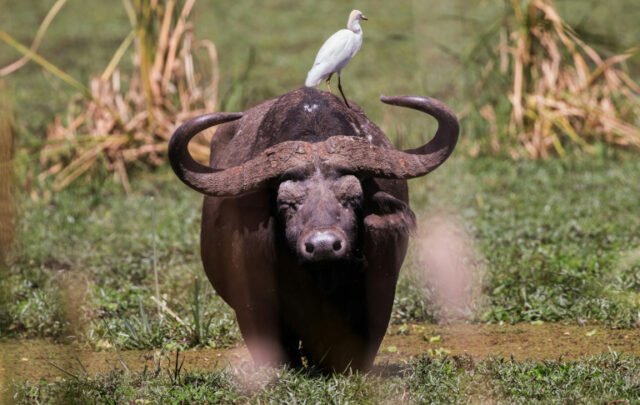International Conference on Global Land Grabbing
Land Deals Politics Initiative and the Journal of Peasant Studies, University of Sussex
The focus of the conference will be on the politics of global land grabbing and agrarian change. Papers are expected to address some of the most urgent and strategic questions around global land grab.
Some suggested topics are below:
(a) What changes in broad agrarian structures are emerging? Are these new forms of agrarian capitalism or repeats of the past?
(b) What is the nature and extent of rural social differentiation – in terms of class, gender, ethnicity – following changes in land use and land property relations as well as organizations of production and exchange?
(c) Have land deals undermined local level and national food security – or not? How, whose and to what extent?
(d) To what extent have agrarian political struggles been provoked by the new land investment dynamics? What are the issues that unite or divide the rural poor, organized movements, and rural communities around the issue of land deals?
(e) What are the various competing policy and political narratives and discourses around the multiple crises of food, energy, climate and finance, and how have these shaped and been reshaped by the land deal politics?
(f) How have competing frameworks and views on land property been deployed by various camps around the contested meanings of ‘marginal lands’ (or, idle’, ‘waste’, ‘unoccupied’ lands)?
(g) What are the emerging trends around dynamics of power, elites and corruption, and land as a source of patronage?
(h) Have global land policies of different overseas development agencies (World Bank, FAO, EU, IFAD, and so on) contributed to facilitating/encouraging or blocking/discouraging land deals? What are the strengths and limitations of ‘code of conduct’, certification, regulation, information dissemination, and capacity-building strategies?
(i) What are the dynamics of international politics of land grabs in the broader context of energy, mining, forestry and conservation; and the role of big capital and powerful interests?
(j) What are some of the relevant emerging alternatives from key actors?
The organizers invite papers that offer rigorous analysis of the identified issues from various critical perspectives including agrarian political economy, political sociology and political ecology. We also encourage comparative studies. We welcome proposals for thematic panels.
(6-8 April 2011)
Links to many of the conference papers are here
Coalition Government ‘must step up to the plate on sustainable food’(report)
Staff, Sustainable Development Commission
New food report finds Government food plans on obesity, climate change and environmental damage ‘insubstantial’.
The Coalition Government’s plans for feed a growing population sustainably and healthily are ‘insubstantial’, according to the Sustainable Development Commission’s final report on food matters, published today (Friday 25 March).
Looking back, Looking Forward: Sustainability and UK food policy 2000 – 2011 , reviews progress towards sustainable food policy in the UK from 2000-2011. It argues that the Coalition Government has failed to layout any defined plans to underpin its commitment to producing more food in the UK. It also argues that Andrew Lansley’s plans for ‘responsibility deals’ with business to tackle obesity are weak and lack defined goals and adequate monitoring.
The report warns all four UK Governments not to step back from the challenge of making our food systems more sustainable, calling on them to raise their game and speed up the pace and scale of change in the light of uncertain oil prices, climate change and public health challenges.
Tim Lang, The SDC’s Food Commissioner and Professor at the Centre for Food Policy, City University said: “The challenge of feeding growing populations healthily while minimising environmental damage – particularly as food and fuel prices continue to rise – should remind governments that this is not a time to step away from tackling our food system. Obesity and climate change are two huge market failures. Our review of the last decade shows that progress requires the hands-on participation of governments – not a ‘leave it to the market’ approach.”
The Sustainable Development Commission recommends that Governments must:
- Prioritise reversing the decline in UK food production, helping expand vegetable crops sustainably and increasing UK fruit production
- Enable the meat and dairy industry to reduce its reliance on grain feedstuffs to lower land use and to reduce greenhouse gas emissions
- Work to create local food partnerships to harness local government, health authorities, community groups and local business to meet local sustainability goals
- Increase efforts to reduce food waste, planning for zero food waste to landfill by 2015
- Ensure practical food experience in schools including cooking skills and food growing
- Reflect the cost of ensuring a nutritious and sustainable diet in minimum wage and benefit levels
- Mandate health and sustainability standards for all publicly procured food.
» Download Looking back, Looking Forward: Sustainability and UK food policy 2000 – 2011
(25 March 2011)
Subsidies and the “True Cost of Food”
How might we better connect the produce and the consumer, OpenIdeo project
The divide between farmer and consumer is widened when government subsidies favor large corporate farm businesses and mono-cropping. The excess produced is shipped around the world, reducing the ability of small, unsubsidized farmers to survive.
The divide between farmer and consumer is widened when government subsidies favor large corporate farm businesses and mono-cropping. The excess produced is shipped around the world, reducing the ability of small, unsubsidized farmers to survive.
The Sierra Club did a great video on the True Cost of Food. It covers a range of issues including factory farming, the loss of local farms, taxpayer subsidies and mono-cropping, and health.
http://video.google.com/videoplay?docid=7929268648728632575#
Large farms receive a disproportionate share of subsides, not the family farm. According to the Environmental Working Group, “Just ten percent of America’s largest and richest farms collect almost three-fourths of federal farm subsidies – cash payments that too often promote harmful environmental practices.”
Particular crops such as corn, wheat, and cotton receive disproportionate relative to other more nutritious vegetables. From 1995 to 2009, corn received $73 billion, wheat $30 billion, and cotton $30 billion. This creates incentives to produce only the highly subsidized crops and mono-cropping. Some of these crops are further processed into non-perishable packaged food products, unrecognizable and disassociated from the origins as a vegetables. Turning corn into corn syrup is an example of this.
Here’s their database of subsidies: http://farm.ewg.org/
(thru May 2011)
Check out the other projects on this site and follow them through the stages of inspiration, concepting, evaluation, and winning…-KS
Kenyans fear Dakatcha Woodlands biofuel expansion
Will Ross, BBC News
Sitting in the shade of a tree beside his thatched mud hut in in Kenya’s Dakatcha Woodlands, Joshua Kahindi Pekeshe is defiant.
“We are not going to let this land go even if it means shedding blood,” he told the BBC.
“Land is very important to us. We farm and get our livelihood from it. On this land we bury our dead.”
He is one of the many people opposed to the creation of a large biofuel plantation in the area, about an hour’s drive inland from the coastal town of Malindi.
It is an arid area and home to some 20,000 people as well as globally threatened animal and bird species.
Ambitious goals
An Italian company has asked the authorities for permission to lease 50,000 hectares there to grow jatropha, whose seeds are rich in oil that can be turned into bio-diesel.
This plant, originally from South America, has long been grown in Africa as a hedge to keep out animals – goats stay well away as it is poisonous. The area affected is community land which is being held in trust by the local council.
Kenya Jatropha Energy Ltd is 100%-owned by the Milan-based Nuove Iniziative Industriali SRL.
…The anti-poverty campaign group ActionAid and the Royal Society for the Protection of Birds (RSPB) commissioned a report to investigate just how green the jatropha project in Kenya’s Dakatcha woodlands would be.
The study by the consultancy group North Energy found that jatropha would emit between 2.5 and six times more greenhouse gases when compared to fossil fuels.
This is partly because large amounts of carbon are stored in the woodlands’ vegetation and soil but the plantation would mean clearing the land of this vegetation.
“The report shows that EU policies are foolish policies because they are not reducing greenhouse gas emissions as the EU is proclaiming,” said ActionAid’s Chris Coxon…
(23 March 2011)
Download the report here.
Who feeds Bristol? Towards a resilient food plan (report)
Joy Carey, NHS Bristol
This report builds on findings in the Bristol Peak Oil report and explores the strengths and vulnerabilities in the current food system that serves Bristol and the city region in more detail.
The report is primarily a descriptive baseline study of the main elements of the food system with an analysis of its resilience. It looks at the ‘positive powers’ cities may have in relation to their food systems and it makes suggestions for action.
The work of researching and preparing the “who Feeds Bristol” report was commissioned and funded by NHS Bristol and undertaken by Joy Carey, an independent food systems planner and researcher. The document was published in March 2011.
The full document can be downloaded as a pdf or by chapter.
Please use the links below:
Who feeds Bristol?
Summary document (pdf, 988kb)
Full report (pdf, 12098 Kb)
Appendices and Case Studies (PDF, 2798 Kb)
(16 March 2011)
Huber warns EU president of glyphosate danger to livestock and plant
Don Huber, Food Freedom
Letter from Prof Don Huber
To US and EU administrations,
President Jose-Manuel Barroso,
EU President
cc to
President Herman Van Rompuy,
President Jerzy Buzek,
Commissioner John Dalli
and some MEPs
March 25, 2011
This cover letter is provided to explain the reasoning and concerns that were conveyed in a letter which I sent to Secretary of Agriculture, Thomas Vilsack on January 17, 2011 (Attachment 1). The letter was not intended for public distribution; however, the letter was ‘leaked’ and subsequently posted on the internet from which it soon became public knowledge world-wide. Once it was widely distributed, I gave permission for subsequent postings in order to keep it consistent. My busy meeting and travel schedule has delayed getting further information on this matter out publicly to the many individuals who have requested it. The scientific data on this newly recognized organism is being prepared for formal publication.
I wrote the letter to Secretary Vilsack for a very simple reason: we are experiencing a large number of problems in production agriculture in the U.S. that appear to be intensified and sometimes directly related to genetically engineered (GMO) crops, and/or the products they were engineered to tolerate – especially those related to glyphosate (the active chemical in Roundup® herbicide and generic versions of this herbicide). We have witnessed a deterioration in the plant health of corn, soybean, wheat and other crops recently with unexplained epidemics of sudden death syndrome of soybean (SDS), Goss’ wilt of corn, and take-all of small grain crops the last two years.
At the same time, there has been an increasing frequency of previously unexplained animal (cattle, pig, horse, poultry) infertility and spontaneous abortions. These situations are threatening the economic viability of both crop and animal producers…
(6 April 2011)
Suggested by EB reader Luane Todd. -KS





